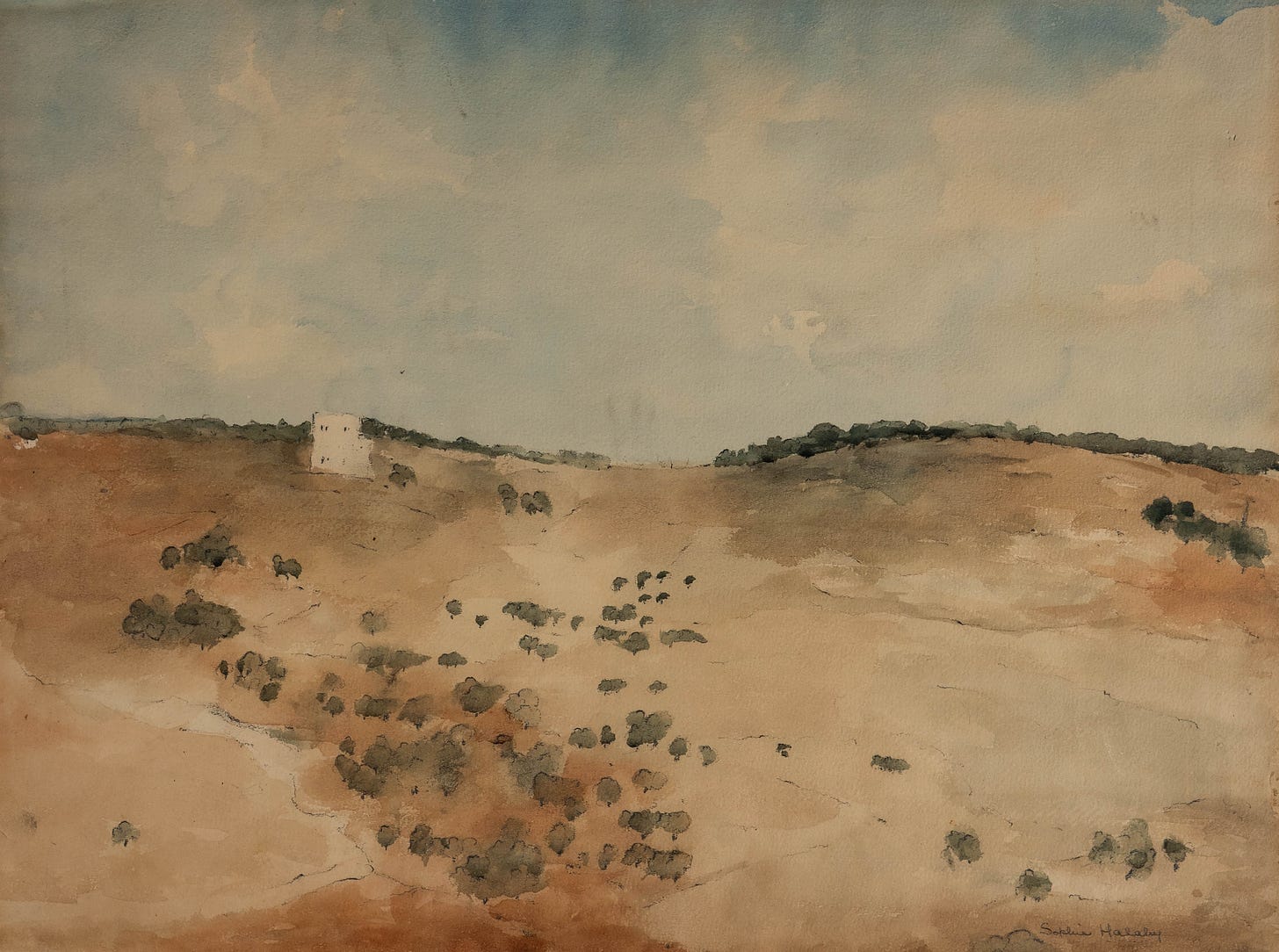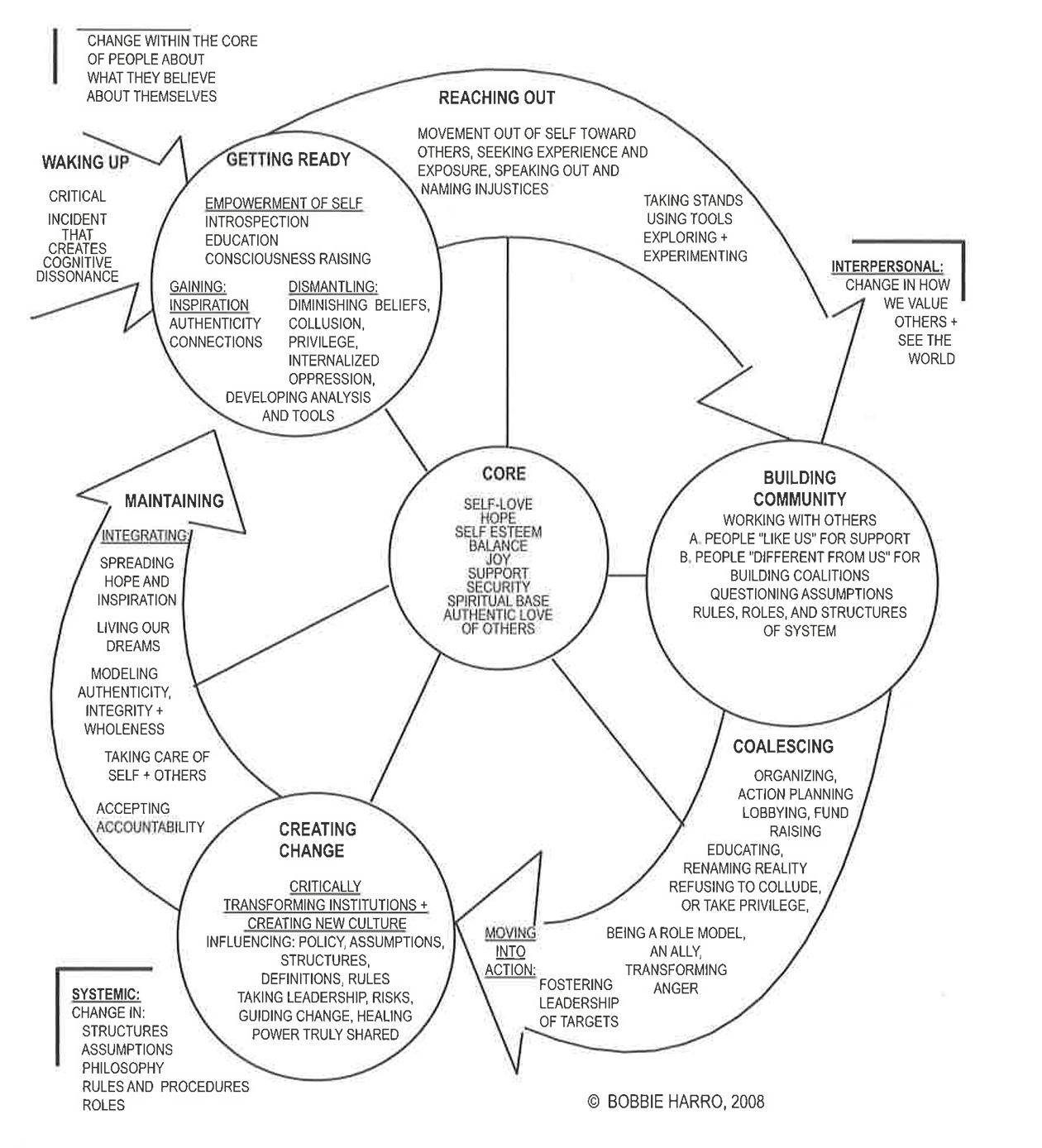
Future editor’s note (June 2025)
I’m reviewing what I’ve shared on substack to see if it still feels like an accurate representation of what I believe or want to express, and I think this piece is cute and good! but also, I have since learned how sourcing is political, and I really wish I had better sourced this piece. I know I was learning from the Mariame Kaba, Kelly Hayes ecosystem, as well as Trey Washington quite a bit at this time. Probably some Dean Spade in here too! Okay, anyways, let’s get into it…
Transcript:
Disclaimer - As always, please know I’m not an expert in this subject matter. I am but an earnest and curious, deep feeling girlie with a laptop and access to the internet. I hope this is the first of more sharing to come as I try to make sense of my experience of being a human right now. I have been very much inspired by Ismatu Gwendolyn; I want to push myself to learn out loud and be in conversation as I do. I believe deeply in the importance of building community with people of shared conscience; people who feel the same heart-aching longing to build a better world as I do. I have been learning so much, and I have so much to learn. I hope this might inspire you to start (or continue) your journey of doing the same.
Helloooo.. It’s been a minute. I’ve been writing quite a bit but haven’t shared my thoughts in this way in a while. A month or so back I got pretty deep into writing a piece trying to explain why, but I would say the long and the short of it is: the last four (plus) months watching the genocide unfold in Gaza cracked something open inside of me and I no longer feel my self-centred musings really need to be occupying space in your limited and precious online attention. That being said, I am a person who needs to make things. I’ve always been this way, and I imagine I always will be. Writing has been a tool I’ve used for processing since before I can remember. I have journals that span the past 20+ years, chronicling my life starting from when I was probably 5 years old (granted, most of the entries back then were about loving my friends and being excited about hot lunch day at school.)
So, in trying to find a way to both continue to make things and also bring conscious awareness and intention to the ways in which I occupy attention, I’ve been studying. I’ve been trying and struggling to find the right words to wrap around what we’ve been bearing witness to and how I’ve been personally transformed by it. I’ve been writing so much and sharing so little, trying to capture fully formulated ideas while my existing paradigms of the world seem to be shifting like fault lines beneath my feet.
Why put myself through the mental strain of all of this? Because I trust I’m not the only person wanting answers to these questions, and I know how powerful and validating naming an experience can be. I believe for the people who know me and care about what I have to say, sharing my thoughts might be impactful in a way that feels profoundly worthwhile to me.
All that to say, the following are some reflections I’ve had recently, adapted from an extremely disjointed collection of voice notes I recorded a month or so back:
𓆝 𓆟 𓆞
I’ve been thinking lately about how the way we behave impacts others. In particular, how the way we behave on social media impacts others.
I think this is in part because there’s a level of discourse around whether or not social media activism is “real” activism. Do the things we post about actually matter? Do they make a difference? In short, yes, but often in ways that are intangible and difficult to directly track.
For example, there are a handful of people who exist in my life and internet universe who I might not even know very well, but who I have seen show up in strong and consistent ways on social media in solidarity of Palestine and the fight for collective liberation. I notice how they ebb and flow in their efforts, I wonder how they’re doing when I see their patterns shift, and I feel grateful for their voices as they bring me the comfort and confidence to add mine to the conversation too. I feel connected to them in this way.
In a similar vein, over the holidays a close friend of mine reached out to an acquaintance and colleague of their’s (who works on their company’s internal "impact” team, or something of that nature) to inquire about what the company was doing in response to the ongoing genocide in Palestine. The acquaintance/ colleague wasn’t Palestinian themself, but they had a number of close Palestinian friends and were noticeably emotional when speaking about the recent events. During their conversation, this person expressed their gratitude to my friend, saying how seeing them post on social media in support of Palestine made them feel safe to share as well.
All that to say: living into your values—including on social media—not only creates opportunities to build connection and community, but also affords others safety. It creates an environment where others might find the confidence to speak out where they might not have otherwise.
You have influence on people close to you, whether you realize it or not.
Having thousands of followers is not a prerequisite for influence because we are not islands; we do not live in isolation. We are all threads woven together in exceedingly complex networks of people and relationships. The way you see those close to you behave affects how you behave, and vice versa. Of course it does! I think we underestimate the impact we can have while creating space to explore ideas and share information with those closest to us. People who you have existing relationships with—who trust and care about you—are much more likely to hear what you have to say and adopt new ideas than loud, agro, radical strangers online are. Plant seeds wherever you go!
With all this in mind, the argument that social media activism doesn’t do anything is a bit bonkers to me. The idea that the widespread, independent sharing of information doesn’t have an impact? How could it not? This article by Visto International for Rights & Development—an organization that aims to promote concepts and practices of sustainable development and human rights across the Middle East and North Africa—describes how social media is “becoming the new coordinating tool for almost all social movements in the world”. It’s influence on social movements includes the ability to “accelerate recruitment, mobilisation, communication and dissemination of information as well as to expand spaces of mobilisation which were not present in traditional mobilisation techniques.” As abolitionist content creator Trey of @whatsonemorepothos has pointed out, social media is also a form of organizing that allows increased access and participation for many marginalized, sick, and disabled folk.
But how do we know we’re making an impact?
This desire for immediate, concrete knowing feels very “of our time”. I don’t think it’s a stretch to say that at this point our brains have been wired in such dopamine-driven ways that it can be a challenge to stay motivated without the instant gratification of directly trackable results. In one video I saw on this, the speaker describes our contemporary approach to activism and changemaking as having an “amaz*n prime mentality”*, one where we sign a handful of petitions and then are discouraged when our actions don’t immediately result in the government we’re living under imposing an arms embargo on Israel and calling for a permanent ceasefire in Palestine. My own distress around this is one of the reasons I’ve felt so compelled to start researching the mechanisms behind large scale change. What I’ve learned is this: it’s not that the petition-signing doesn’t matter—it does—but it’s just one lever amongst many available for us to pull, and our efforts most definitely cannot stop there. In a similar way, social media is a tool for movement-building, but it cannot be the only tool.
What’s more important than a single signature, a single call to your MP, or a single protest you attend, is the sustained commitment to building a different future. It’s the desire to learn about the interconnected struggles of humanity and to understand the systems they are rooted in so you can actively, continuously work to dismantle them. It’s striving to uncover what your specific role is in doing so—both individually and in community—starting where you are right now, within your current skills and access and circumstances. It’s embodying the belief that a better future is possible, to imagine what it looks like, and to figure out what it means to act it out today. And above all, it’s essential that we build and strengthen our ability to organize. In all of my learning, one theme emerges again and again:
change happens when a group can come together and work towards a common goal through sustained, coordinated efforts and resources.
This might not seem like groundbreaking information, but I challenge you to consider what it might look like for you (us) to actually put this into practice in your (our) day to day life.
In a video I came across recently, climate justice activist and bestselling author Mikaela Loach uses mushrooms and mycelium networks and as an analogy for the process of changemaking. Similar to our “same day delivery” mindset, they point to how we often hyperfocus on the “mushrooms”—the big “wins”—and fail to recognize that these are made possible only because of the “mycelial networks” that had been put into place by those doing the work before us who maybe didn’t “succeed” (or, see mushrooms) at the time. This imagery is so beautiful to me: to picture how every action we take ripples through our communities and builds upon something much bigger than any single effort could be on its own. To know that as we pull the levers of change available to us there is a vast (though invisible) symbiotic network of connections forming to support us as we continue. This quote from Hannah Arendt (German-American historian, philosopher, and one of the most influential political theorists of the 20th century) describes this phenomena quite beautifully—
“Every deed and every new beginning falls into an already existing web, where it nevertheless somehow starts a new process that will affect many others even beyond those with whom the agent comes into direct contact … The smallest act in the most limited circumstances bears the seed of the same boundlessness and unpredictability; one deed, one gesture, one word may suffice to change every constellation.”
– Hannah Arendt, The Human Condition (1958)
It’s a powerful thought, and I think we’re being faced with a challenge: can we shift our existing mental models around time and urgency and immediacy to embody this new-to-us (though, not new at all in Indigenous cultures) way of thinking about the world? I believe we are being called to develop a more expansive understanding of time; to trust that the mushrooms are coming, and that each effort we make is feeding the network that is nourishing them.
So then, how do we keep going?
Something that’s been helping me sustain my personal hope and motivation is the amount of experts—people who have been in the work around the liberation of Palestinians for decades—who are saying they’ve never seen anything like this before in terms of widespread, sustained solidarity and action in support of a free Palestine. What is happening now is unprecedented in so many ways. Never before have we been this connected; witnessing a people broadcasting their own genocide directly to us via our phones. If you’re paying attention, you can see change is already happening. It’s in the international calls for the liberation not only of Palestine, but also Sudan, Congo, Hawaii, Haiti, Puerto Rico, Hawaii, and Tigray. It’s in the growing awareness around the toxicity of imperialism, colonialism, capitalism and all of the systems of oppression that play together to keep certain bodies down and raise others to the top of imagined hierarchies. It’s in the bathroom stall graffiti and street sign stickers calling for ceasefire. The writing is quite literally on the wall.
To loosely paraphrase a 11 year old CrashCourse World History video (taught by John Green lol) that I watched recently: movements are not events so much as processes. Every day we are making subtle irrevocable decisions that the people of the future will look back on and call movements—if we do our jobs right—so why not participate? Why not try to change the world? I am not the person who will be leading the fight to rebuild a society of collective liberation, nor should I be, but I can participate as a “white person of good will” (a term I’m borrowing from MLK). I can make things in service of this future I want to help build. I can pull threads, I can ask questions, I can study the generous abundance of not-new ideas around how we might more equitably structure our world and I can do my best to help spread them.
I’m being pushed to grow and stretch and change from this learning, and it can be deeply challenging at times, but it is an unbelievable gift to have the chance to grow; I think of the thousands of Palestinian children who will never be so lucky. And because I am able I feel it’s my responsibility to turn towards this challenge and do so. I don’t know about you, but when I look back on my life I want to be able to say I was on the side of history that was trying. I hope you’ll join me! Even if you can't directly see it yet, even if the mushroom hasn’t yet sprouted, or the amaz*on prime social movement package hasn’t yet arrived, your actions matter. They matter! Keep going!
Thank you for reading (or listening), if you’ve made it this far!! I hope to chat with you soon.
– Kyla
Outro music by @bo.nus.mp3 ♥
Further learning
*Am*zon prime mentality video:
I wish I could remember who made this video, please let me know if this is ringing any bells for you!!
How to turn protest into powerful change (~5min)
Cycle of Liberation







Share this post